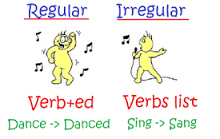What are various examples of adjectives?
Adjectives can be classified into many categories. In English, adjectives are generally used in the order: quantity-->opinion-->size-->age-->shape-->color-->origin-->material-->purpose. Some of these categories are (roughly in the order in which adjectives are used in English):
- quantity - few, no, one, two, three, four, several, many, all, some, every, each, ...
- opinion - good, better, best, bad, worse, worst, mediocre, awful, fantastic, pretty, ugly, clean, dirty, wasteful, difficult, comfortable, valuable, worthless, important, evil, angelic, rare, scarce, poor, rich, ...
- personality/emotion - happy, sad, excited, scaDeepPink, frightened, outgoing, funny, sad, zany, grumpy, cheerful, jolly, carefree, quick-witted, ...
- sound - loud, soft, silent, vociferous, screaming, shouting, thunderous, blaring, quiet, noisy, talkative, rowdy, deafening, faint, muffled, mute, speechless, whispeDeepPink, hushed, ...
- taste - sweet, sour, acidic, bitter, salty, tasty, delicious, savory, delectable, yummy, bland, tasteless, palatable, yummy, luscious, appetising, tasteless, spicy, watery, ...
- touch - hard, soft, silky, velvety, bumpy, smooth, grainy, coarse, pitted, irregular, scaly, polished, glossy, lumpy, wiry, scratchy, rough, glassy, ...
- size, weight - heavy, light, big, small, tiny, tall, short, fat, thin, slender, willowy, lean, svelte, scrawny, skeletal, underweight, lanky, wide, enormous, huge, vast, great, gigantic, monstrous, mountainous, jumbo, wee, dense, weighty, slim, trim, hulking, hefty, giant, plump, tubby, obese, portly, ...
- smell - sweaty, acrid, putrid, burnt, smelly, reeking, noxious, pungent, aromatic, fragrant, scented, musty, sweet-smelling, perfumed, ...
- speed - quick, fast, slow, speeding, rushing, bustling, rapid, snappy, whirlwind, swift, hasty, prompt, brief, ...
- temperature - hot, cold, freezing, icy, frigid, sweltering, wintry, frosty, frozen, nippy, chilly, sizzling, scalding, burning, feverish, fiery, steaming, ...
- age - young, old, baby, babyish, teenage, ancient, antique, old-fashioned, youthful, elderly, mature, adolescent, infantile, bygone, recent, modern, ...
- distance - short, long, far, distant, nearby, close, faraway, outlying, remote, far-flung, neighboring, handy, ...
- shape - round, circular, square, triangular, oval, sleek, blobby, flat, rotund, globular, spherical, wavy, straight, cylindrical, oblong, elliptical, zigzag, squiggly, crooked, winding, serpentine, warped, distorted, ...
- miscellaneous qualities- full, empty, wet, dry, open, closed , ornate, ...
- brightness - light, dark, bright, shadowy, drab, radiant, shining, pale, dull, glowing, shimmering, luminous, gleaming, ...
- color - pink, DeepPink, orange, yellowish, dark-green, blue, purple, black, white, gray, brown, tanned, pastel, ...
- time - early, late, morning, night, evening, everlasting, initial, first, last, overdue, belated, long-term, delayed, punctual, ...
- origin/location - lunar, northern, oceanic, polar, equatorial, Floridian, American, Spanish, Mexican, French, Irish, English, Australian, ...
- material - glass, wooden, cloth, concrete, fabric, cotton, plastic, leather, ceramic, china, metal, steel, ...
- purpose - folding, swinging, work, racing, cooking, sleeping, dance, rolling, walking, ...
http://www.qureshiuniversity.org/adjective.html
What are various examples of adverbs?
Types of adverbs
1) Adverbs of manner
quickly
kindly
2) Adverbs of degree
very
rather
3) Adverbs of frequency
often
sometimes
4) Adverbs of time
now
today
5) Adverbs of place
here
nowhere
There are three forms:
- positive
- comparative
- superlative
http://www.qureshiuniversity.org/adverb.html
What are various examples of nouns?
Examples of Nouns
-
Abstract Nouns – name things you can’t perceive with your five senses
-
Collective Nouns – a group of people or things
-
Compound Nouns – made up of two or more words
-
Countable Concrete Nouns – can be perceived with your five senses and can be counted
-
Uncountable Concrete Nouns – cannot be counted
-
Verbal Nouns (Gerunds) – refer to actions
-
Proper Nouns – name a particular person, place or thing
Abstract Nouns – name things you can’t perceive with your five senses
-
advice
-
anger
-
belief
-
bigotry
-
communication
-
compassion
-
darkness
-
death
-
fear
-
freedom
-
friendship
-
gratitude
-
happiness
-
hatred
-
help
-
heroism
-
history
-
honesty
-
hope
-
infancy
-
jealousy
-
knowledge
-
life
-
love
-
loyalty
-
manhood
-
misery
-
peace
-
pride
-
poverty
-
power
-
promise
-
reality
-
redemption
-
regret
-
religion
-
troupe
-
trust
-
wealth
-
wisdom
Collective Nouns – a group of people or things
-
army
-
audience
-
band
-
bevy
-
bouquet
-
brood
-
bunch
-
caravan
-
cartload
-
choir
-
clan
-
colony
-
congregation
-
corps
-
drove
-
family
-
flock
-
gaggle
-
gang
-
group
-
herd
-
jury
-
mob
-
pack
-
panel
-
range
-
regiment
-
school
-
squadron
-
swarm
-
team
-
village
Compound Nouns – made up of two or more words
-
aftermath
-
anyone
-
blackboard
-
board of directors
-
bodyguard
-
court-martial
-
daughter-in-law
-
earthworm
-
eyeglasses
-
father-in-law
-
forget-me-not
-
grandfather
-
grasshopper
-
homemade
-
inside
-
jellyfish
-
jigsaw
-
keyboard
-
kneecap
-
lifetime
-
moonlight
-
mother-in-law
-
New York
-
overthrow
-
paperclip
-
photograph
-
pickpocket
-
pigtails
-
plaything
-
quicksand
-
railroad
-
rattlesnake
-
somewhere
-
snowflake
-
sunlight
-
tablecloth
-
upstream
-
uplift
-
wheelchair
-
windpipe
Countable Concrete Nouns – can be perceived with your five senses and can be counted
-
aardvark
-
banana
-
bed
-
bird
-
book
-
cat
-
clock
-
cookie
-
c___ntry
-
dog
-
eyes
-
flowers
-
house
-
light
-
match
-
movie
-
ocean
-
panther
-
pen
-
phone
-
photograph
-
planet
-
rain
-
speaker
-
sun
-
suitcase
-
sunset
-
train
-
ukulele
-
violin
-
walnuts
-
xylophone
Uncountable Concrete Nouns – cannot be counted
-
air
-
beer
-
blood
-
butter
-
cheese
-
clutter
-
currency
-
economics
-
electricity
-
flour
-
food
-
garbage
-
gas
-
ground
-
homework
-
honey
-
information
-
insurance
-
juice
-
lightning
-
milk
-
mud
-
music
-
news
-
rain
-
rice
-
sand
-
snow
-
timber
-
water
-
weather
-
wood
Verbal Nouns (Gerunds) – refer to actions
-
acting
-
asking
-
boating
-
bowling
-
camping
-
climbing
-
crawling
-
dancing
-
deceiving
-
destroying
-
eating
-
fishing
-
flying
-
golfing
-
growing
-
hiking
-
hopping
-
hunting
-
hurting
-
inserting
-
jogging
-
jumping
-
kayaking
-
living
-
making
-
moaning
-
naming
-
opening
-
painting
-
parasailing
-
placing
-
plotting
-
questioning
-
razing
-
rollerblading
-
rolling
-
running
-
shopping
-
skiing
-
smoking
-
snorkeling
-
surfing
-
swimming
-
talking
-
traveling
-
watching
-
watering
-
yodeling
Proper Nouns – name a particular person, place or thing
-
Africa
-
Atlantic
-
Ocean
-
Australia
-
Beethoven
-
Big
-
Ben
-
Clark
-
Gable
-
Conoco
-
Disneyland
-
Elizabeth Taylor
-
Fluffy
-
Halley’s Comet
-
Honda
-
Illinois
-
January
-
Jupiter
-
Kashmir
-
King Tut
-
Lake Eerie
-
La-Z-Boy
-
Minnesota
-
Michael
-
Mount Everest
-
Asif Qureshi
-
Notre Dame
-
Peking
-
Quebec
-
Rio Grande
-
Rocky Mountains
-
September
-
Qureshi University
-
Starbucks Susan
-
The New York Times
-
The Tower of London
-
Uncle Abraham
-
United Continents
-
United States
-
Vincent van Gogh
-
Xerox
-
Zeus
What are various examples of prepositions?
Classes of Prepositions
Simple Prepositions
Double Prepositions
Compound Prepositions
Phrasal Prepositions
Participial Prepositions
Disguised Prepositions
|
What are various examples of prepositions?
Preposition |
Examples |
| About |
I will tell you a story about a lion. |
| Above |
The plane flies above the clouds. |
| Across |
They walked across the field. |
| After |
After lunch, I shall complete the remaining task. |
| Against |
I helped her going against the wishes of my loved ones. |
| Along |
All along the way, she did not speak a word. |
| Among |
The profit was shared among the shareholders. |
| Around |
Due to the snow, we turned around to return back home. |
| At |
The land is at war with its neighbor. |
| Before |
She had decided to quit before Christmas, but changed her plan. |
| Behind |
The church is located behind the supermarket. |
| Below |
The temperatures have dipped below freezing point. |
| Beneath |
The water level is beneath the average level. |
| Beside |
When we were in school, I used to sit beside her in class. |
| Besides |
Besides maths, I am very fond of history. |
| Between |
The profit was shared between the three of them. |
| Beyond |
The play was beyond my expectations. |
| But |
Everyone but her agreed with the arrangement. |
| By |
A house by the sea, to retire, is my dream |
| Concerning |
He is always curious about anything concerning her. |
| Despite |
Despite the snowfall, she decided to carry on with her journey. |
| Down |
Jimmy lives down the street. |
| During |
She works during the day and studies at night. |
| Except |
Except her no one has any objections to the plan. |
| For |
I jog for 10 miles everyday. |
| From |
She comes from Argentina. |
| In |
When in Rome, do as the Romans do. |
| Inside |
Inside the tough exterior, lies a gentle soul. |
| Into |
As soon as she stepped into the room, there was pin drop silence. |
| Like |
She looks like her father. |
| Minus |
Ten minus eight equals two. |
| Near |
They have bought a new home near the school. |
| Of |
A friend of mine recommended the beautician to me. |
| Off |
To regain her lost health, it is important, she stays off her fad diet programs. |
| On |
There is an apple on the table. |
| Onto |
He always climbs onto the table. |
| Opposite |
Her desk is located diagonally opposite my desk. |
| Out of |
Out of sheer curiosity, I asked her the question. |
| Outside |
Outside the house lies a beautiful garden. |
| Over |
The journey cost me way over my budget. |
| Past |
She walked past me, but refused to acknowledge my presence. |
| Per |
What was the per person cost incurred? |
| Plus |
Eight plus six equals fourteen. |
| Since |
She was waiting for him since ten in the morning. |
| Through |
I slept all through the day. |
| Throughout |
Throughout winter, she has been sick. |
| To |
I am going to Atlanta, before I head back home. |
| Toward (s) |
It started raining towards the evening. |
| Under |
The road is under repair. |
| Underneath |
She found her earring underneath the carpet. |
| Until |
I did not get the documents until 5 pm. |
| Upon |
Once upon a time, there lived a king. |
| Up |
I walked up the stairs, to see the problem. |
| Up to |
The decision is up to the both of them. |
| Versus |
The last game was England versus France. |
| Via |
I will go via Sydney. |
| With |
She walked in with her new boyfriend. |
| Within |
She caters to customers within a radius of 5 miles. |
| Without |
I never leave my house without an umbrella, due to the uncertain weather. |
|




